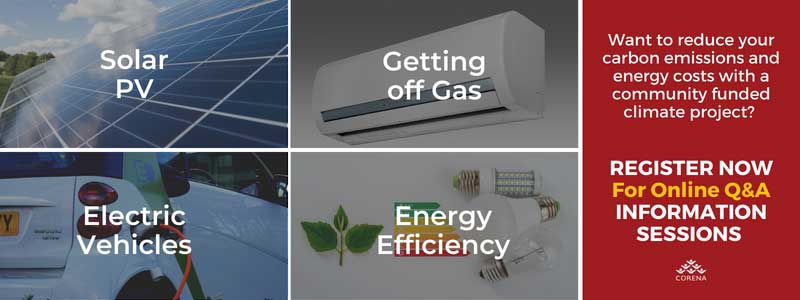In Australia, gas is commonly used as an energy source for cooking, hot water systems and heating. To reduce emissions and tackle the climate emergency, a lot of attention to date has focused on transitioning from coal fired power to more renewable sources of energy such as solar. Both domestic and commercial use of gas has been often overlooked in regards to its negative climate and environmental impacts. To help explain the problem and the solutions available to reduce the impact of fossil gas, we’ve put together this guide about the top reasons to get off gas and how to do it.
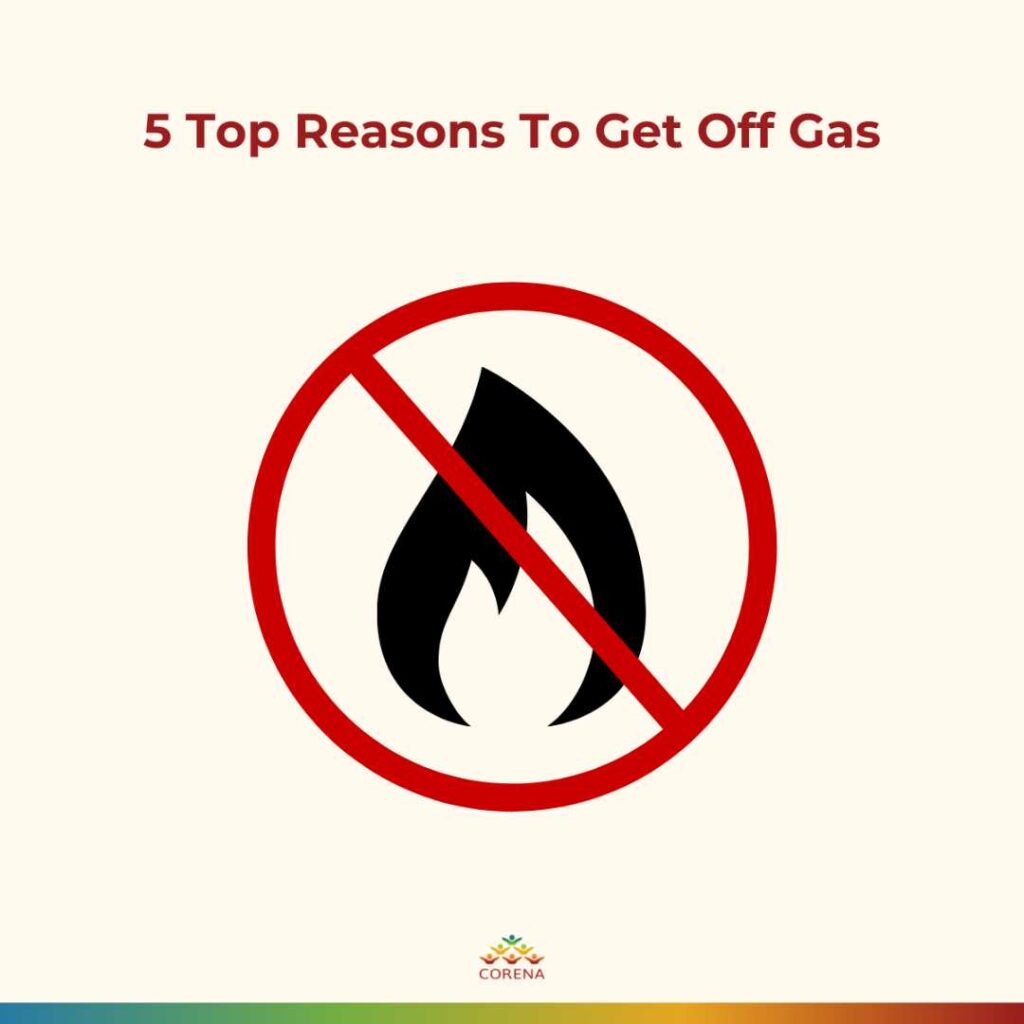
1. Gas Is A Fossil Fuel
The burning of fossil fuels results in the release of carbon dioxide, which is a key contributor to climate change. There is often the misperception that fossil gas is a lower emissions option when compared to grid electricity and in the past it was. But the proportion of renewable energy in the grid is increasing in all states reducing its carbon intensity. If your previously gas powered appliances are powered by your own solar panels the carbon emissions are reduced even further.
Switching to renewable electricity sources is not enough on its own. We need rapid decarbonisation by reducing all gas and fuel emissions in order to have a real chance of minimising climate and environmental impacts.
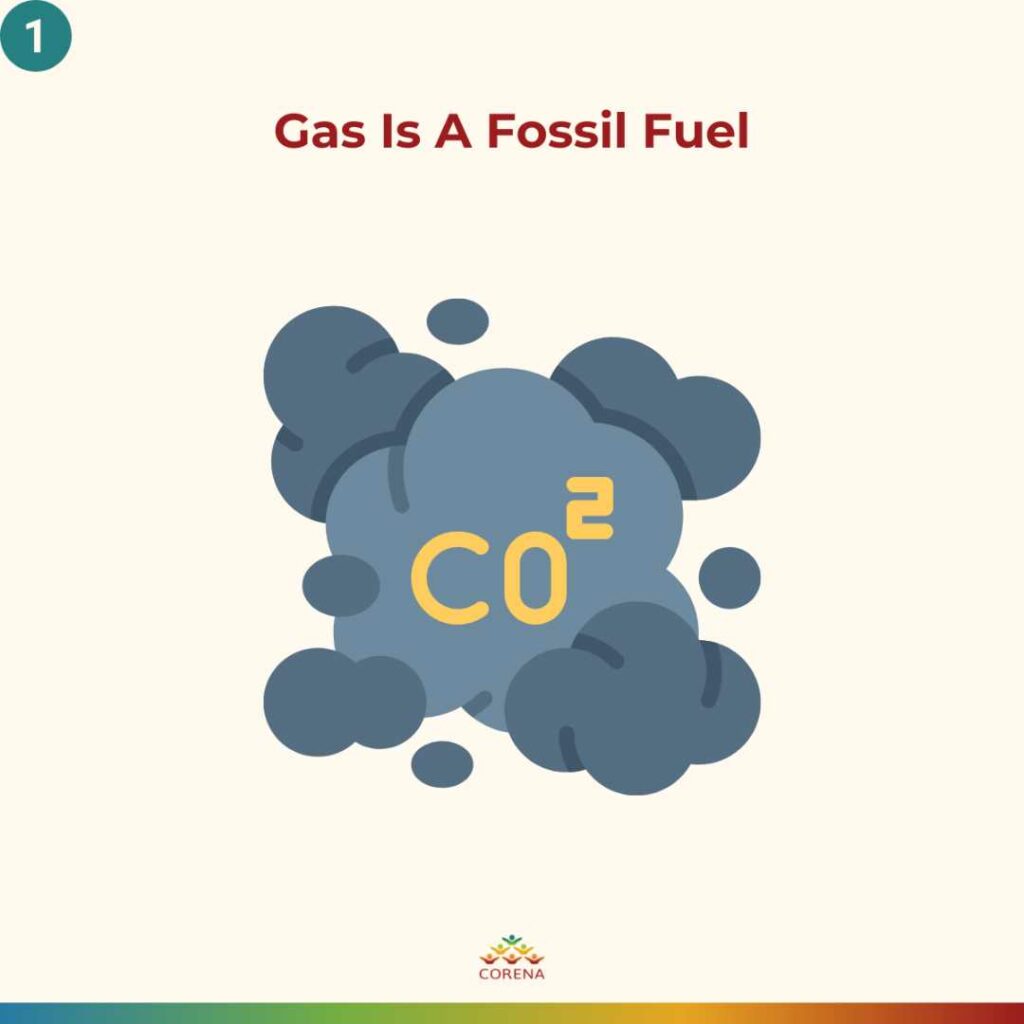
Learn more in Getting off fossil gas
2. Improve Energy Efficiency & Save Money!
Numerous studies have shown that switching to electric appliances can often have lower running costs than using natural gas appliances.
Gas has additional costs beyond just the amount consumed. A significant proportion of your bill is supply and connection charges.
Buildings joined to mains gas, which go completely electric, can remove this ongoing cost by disconnecting from the gas network.
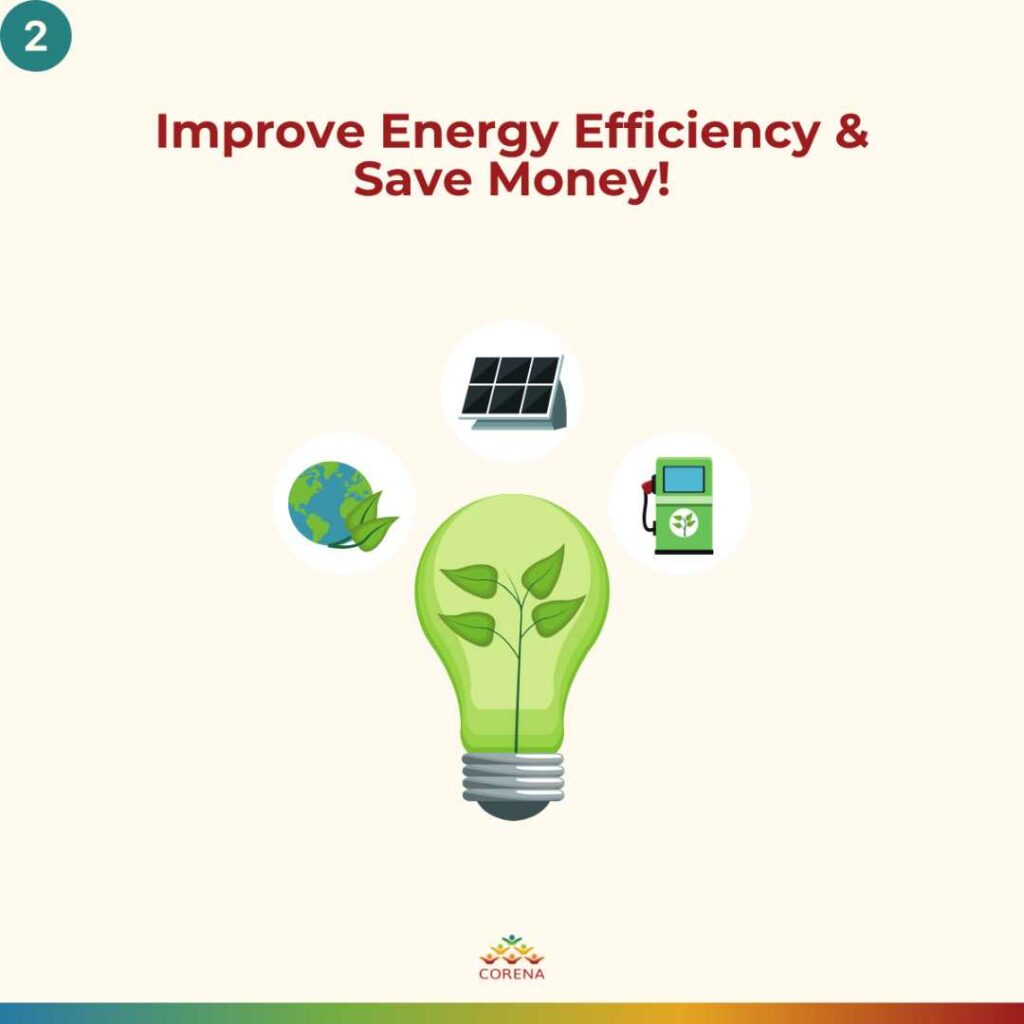
3. Make the Most of Your Solar Panels
If you have solar panels that are generating excess energy it makes sense to use this rather than exporting to the grid. Switching to electric appliances that run in the day means you use this free energy rather than paying for gas. Split system air conditioners generally run in the day anyway and electric hot water systems can be set with timers to run during the time your solar is producing. If you are installing solar panels, think about making them a bit larger to allow for switching to electric appliances in the future.
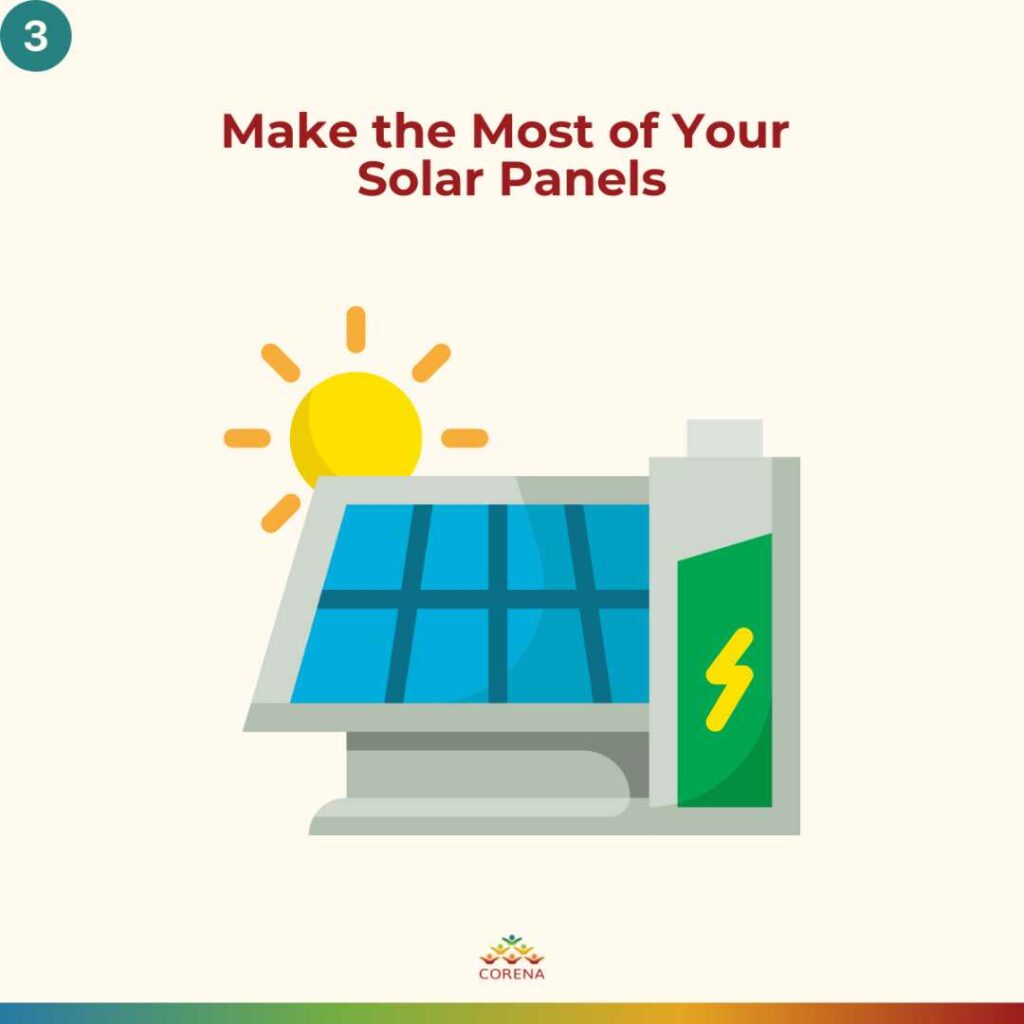
Learn more in How To Benefit Most From Your Organisation’s Solar Panels
4. More Options To Monitor & Control Electricity Use
When you have electricity, a way to limit costs is the purchase and installation of an energy monitoring system. While it is possible to monitor gas usage remotely it is more difficult to analyse gas usage alongside electricity use. Monitors can track your electricity use, warn users when appliances are using a lot of energy and identify unusual patterns for investigation. As with many cloud-based systems, these can be used remotely via an app on your phone or tablet. Additionally going all electric means that you can take full advantage of potentially remotely controlling everything including lighting, heating/cooling, etc via “smart” building automation technologies.
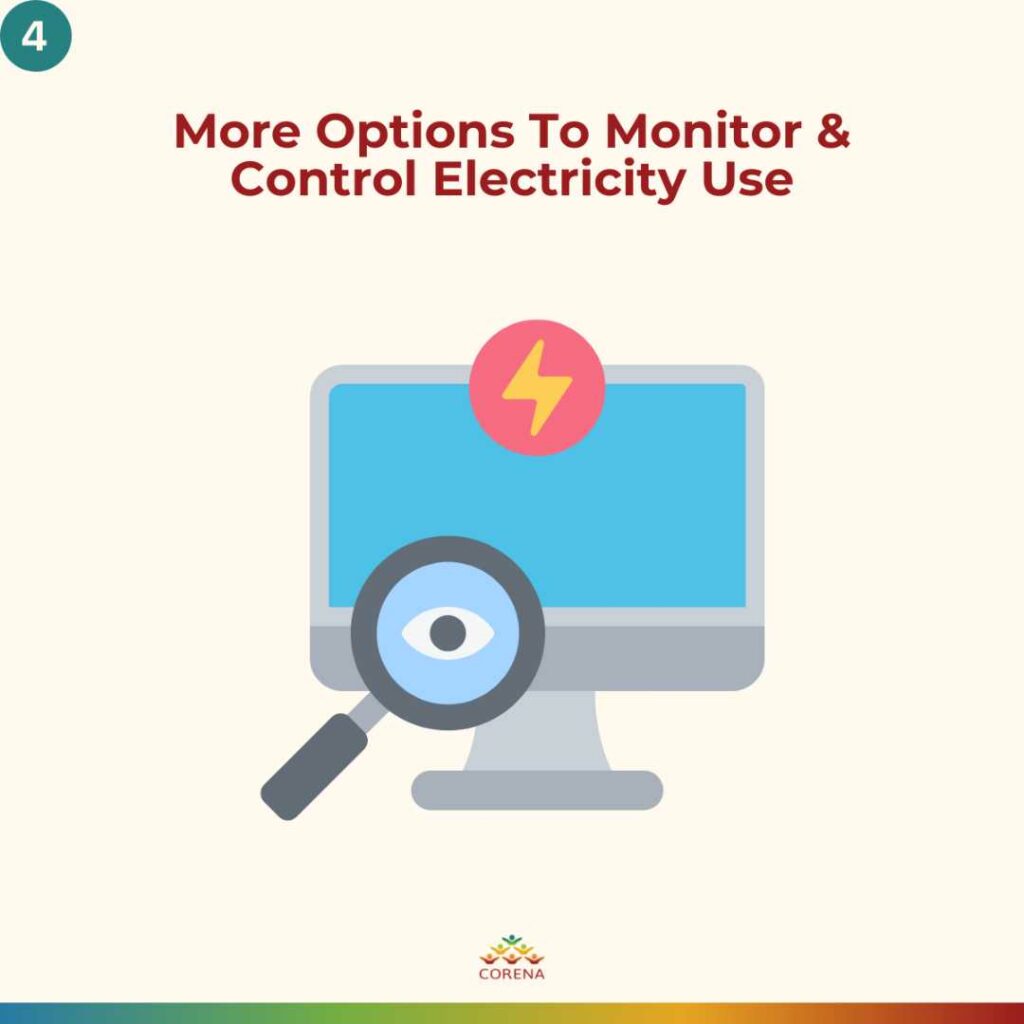
Learn more in How Energy Monitoring Can Reduce Carbon Emissions & Electricity Costs For Non Profits
5. Health & Safety
A recent report by the Climate Council outlined several key ways that gas is detrimental to human health. In terms of fossil gas extraction, processes often involve using hazardous substances that can contaminate the local environment. Whilst cooking using gas stove tops in domestic settings can put inhabitants at greater risk of asthma, and also leak dangerous gases such as methane, even when switched off! Not to mention the fire and safety risks associated with having a naked flame inside!
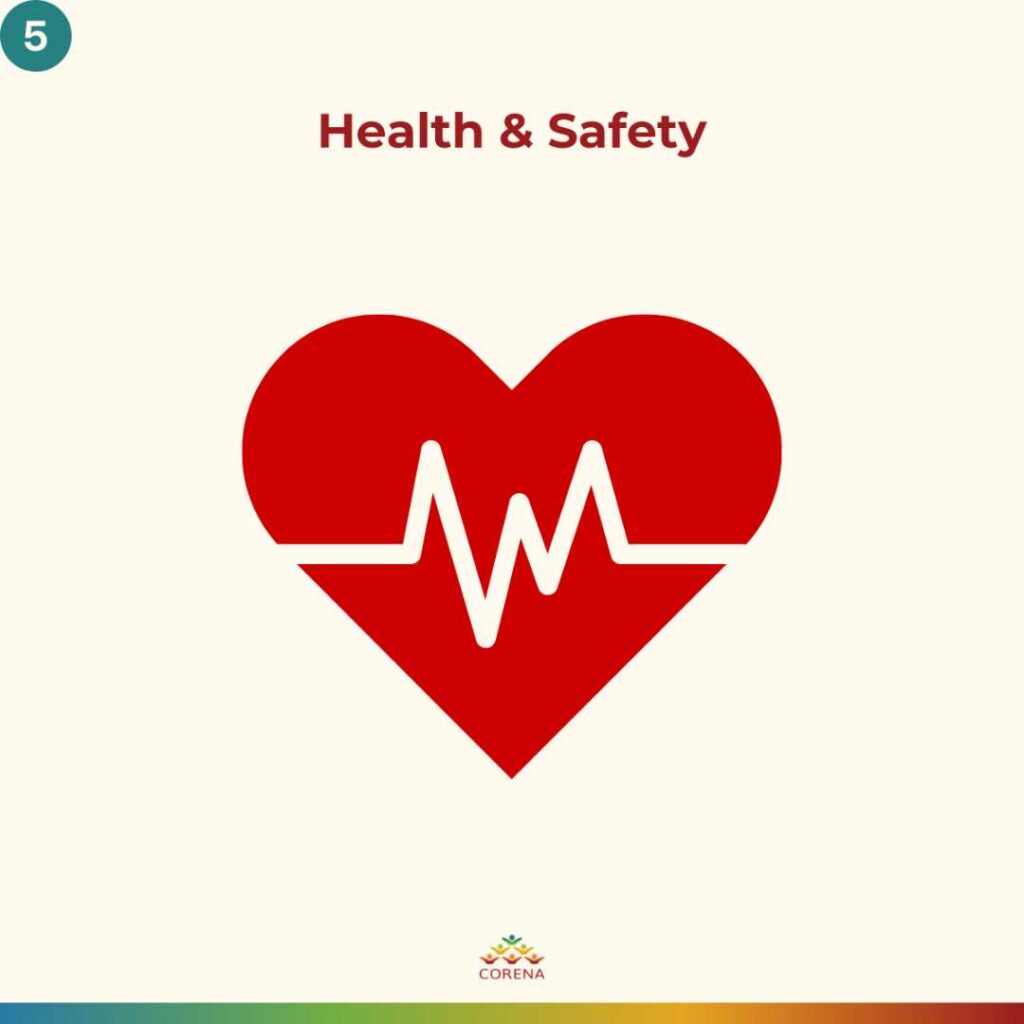
What Is A Getting Off Gas Project?
CORENA has a special fund for “Getting off gas projects” and would love to hear from organisations seeking to replace gas appliances with efficient electric options.
We can also help you develop a business case for the upgrade by working out your carbon and cost savings as well as other technical advice.
How To Get Off Gas
Getting off gas involves replacing any old and power-hungry gas appliances with newer more energy-efficient systems.
Learn more in 7 Ways To Green Your Workplace & Boost Energy Efficiency
Evaluate Your Organisation’s Carbon Emissions & Energy Use
A good place to start is by working out your organisation’s carbon footprint and overall energy consumption patterns across all areas of your operation.
There are many online resources which can be of great help in working out your organisation’s emissions, and carbon footprint, like this Business Carbon Footprint Calculator. They can also show what proportion of your carbon emissions is coming from your gas use and how much you could reduce your emissions by switching.
Once you have established your carbon footprint, you can then look at measures you can take to reduce it.
An energy efficiency audit will ensure your premises are as energy efficient as possible and identify where the use of heat pumps, induction stovetops, solar panels and potentially even electric vehicles may benefit both your organisation and the planet. CORENA can also assist you to evaluate your energy use and identify opportunities to help save on costs as well as reduce carbon emissions.
Learn more in Energy Efficiency Audit Guide For Non-Profits
Key appliances that should be considered by any organisation that wants to get off gas and be more energy efficient are:
Hot Water Systems
Switching your gas hot water system for a heat pump hot water system can cost a bit extra up front but can often be worth it especially if you can set the heat pump on a timer to run during the day while your solar panels are producing. Most new heat pump hot water systems have an inbuilt timer for this purpose. If your organisation uses a lot of hot water (eg a commercial kitchen or residential facility) it may make sense to make the switch now or if you don\’t use much (eg showers in an office) wait until your current system reaches the end of its useful life and switch it then.
Gas Heating
Heating is a significant proportion of most organisation’s energy use. If you are using gas heating this can be replaced by heat pump (also called split system) air conditioners which have the added benefit of cooling too. You may already have split systems which you use for cooling. A lot of people don\’t realise that it can actually be cheaper to run these than gas heating especially if your split system is relatively new and has a high energy rating.
Heat pumps warm buildings but they don\’t generate heat; rather, they transfer heat from one place to another. Ordinary heaters create heat that is distributed throughout a building, but heat pumps are different. They absorb heat from the outside and move it inside, even during colder weather. Heat pumps warm buildings using heat from sources such as air and ground, and they do this three times more efficiently than gas boilers.
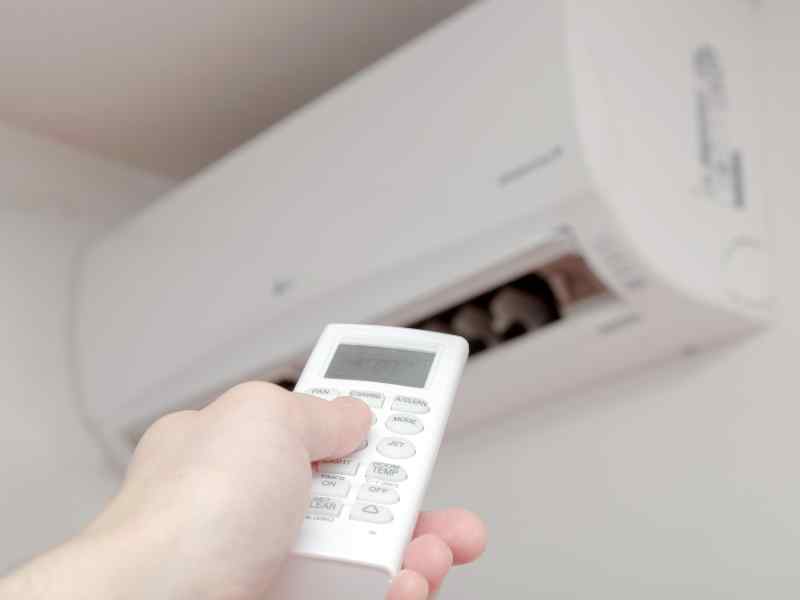
Learn more in Heat Pumps Guide For Non Profits
Induction Stovetops
An induction cooktop is a means of cooking that heats by making use of the principles of electromagnetism. Unlike regular cooking, there is no flame or a separate element. Because of this, an induction cooktop cooks much faster and more efficiently.
There have been numerous tests, which compare induction cooking with more traditional forms. If you use induction cooking, then 85-90% of the heat created is used in the cooking. In comparison, with a gas stove, the corresponding figure is 30% and for standard electric cooktops, there is only 65-70% of the heat used for cooking.
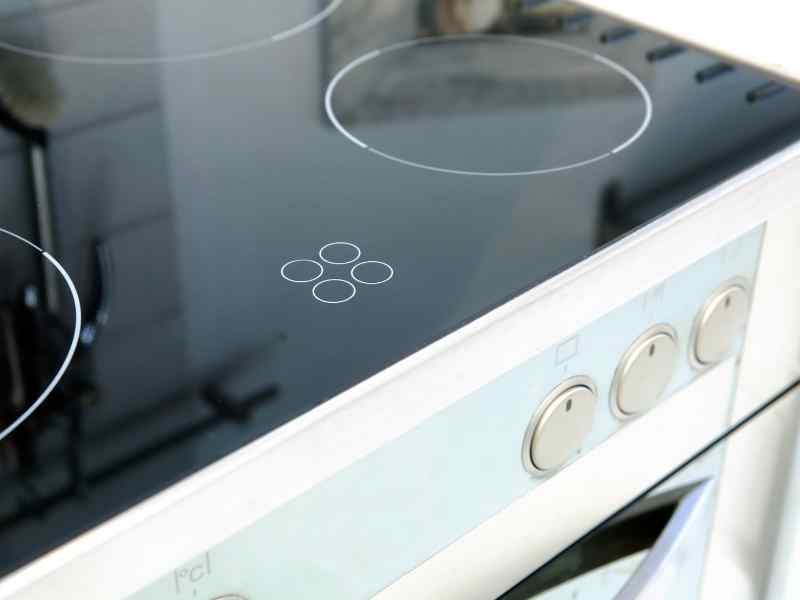
Learn more in Induction Stovetops Guide For Non Profits
If you get to the point where you have switched out all of your gas appliances for electric, talk to your gas provider about switching off your account to avoid supply charges. Some companies make this easier than others and fees may apply.
Switch To Electricity Generated By Renewable Energy Sources
To complement your getting off gas project, another key step your organisation can take, if it hasn’t already, is to transition to electricity produced from renewable energy sources. This can be done by installing solar panels and buying renewable energy from your retailer.
Even though electricity is generally considered better than gas, when it comes to climate impact, not all electricity is created equal. This is because electricity is produced in different ways from both renewable, which are generally sustainable and non-polluting, or non-renewable sources which generate greenhouse gasses and other types of polluting emissions.
Learn more in Why Solar Panels Are A Top Renewable Energy Source
Currently a major percentage of electricity is generated from fossil fuels, but renewable energy sources are on the rise. In fact, in 2021 Tasmania and South Australia generated more renewable electricity than fossil fuel energy. Thankfully, in the future as Australia\’s electricity is becoming greener, the emissions of the electricity grid as a whole should reduce over time.
Install Solar Panels
Solar panels produce energy directly from the sun and provide a clean, sustainable and practically free source of energy which can be used for lighting, heating, electrical appliances and even electric vehicles. Powering heat pumps and induction stovetops with solar energy is a great way to make the most of a getting off gas project.
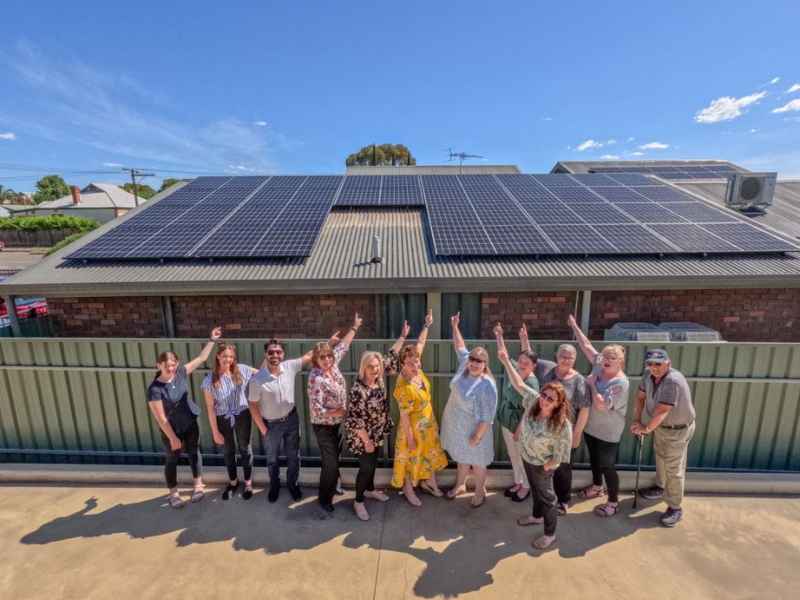
Learn more in Solar Panels – A Guide For Non Profits
Interest Free Loans For Getting Off Gas & Renewable Energy Projects
CORENA works with a wide range of non profits, charities, social enterprises and community organisations, and provides zero-interest loans to fund climate and renewable energy projects. If approved for funding, you will not pay any interest on a CORENA loan, and the quarterly loan repayments are set to be a little less than the savings on your operating costs averaged over a year. This means you are never out of pocket and after your loan is fully repaid you reap the full financial benefit of having lower operating costs.
To learn more, check out how to apply for a project loan, or register for one of our upcoming Online Q&A Information Sessions.
